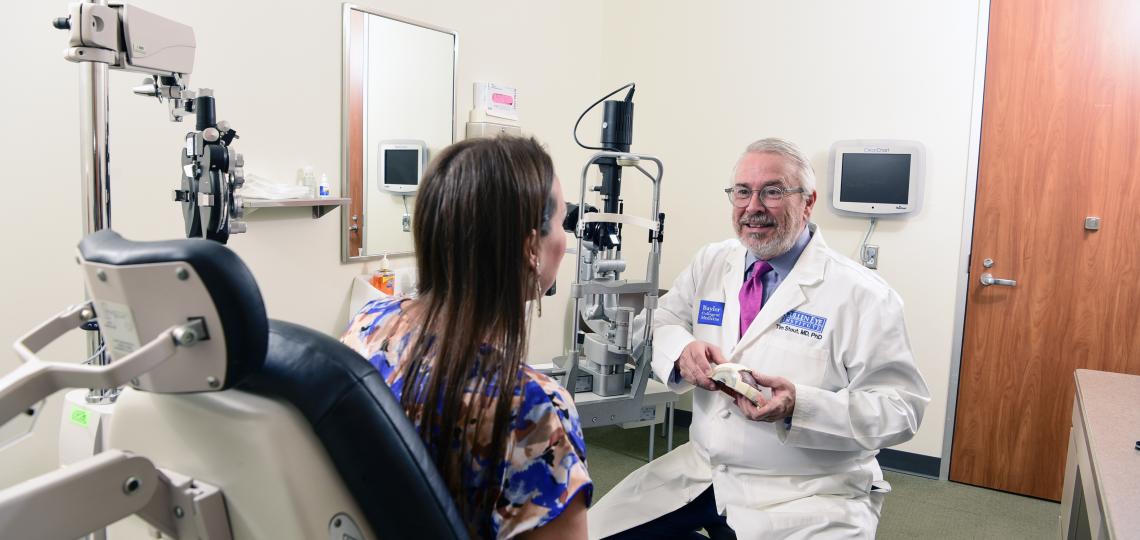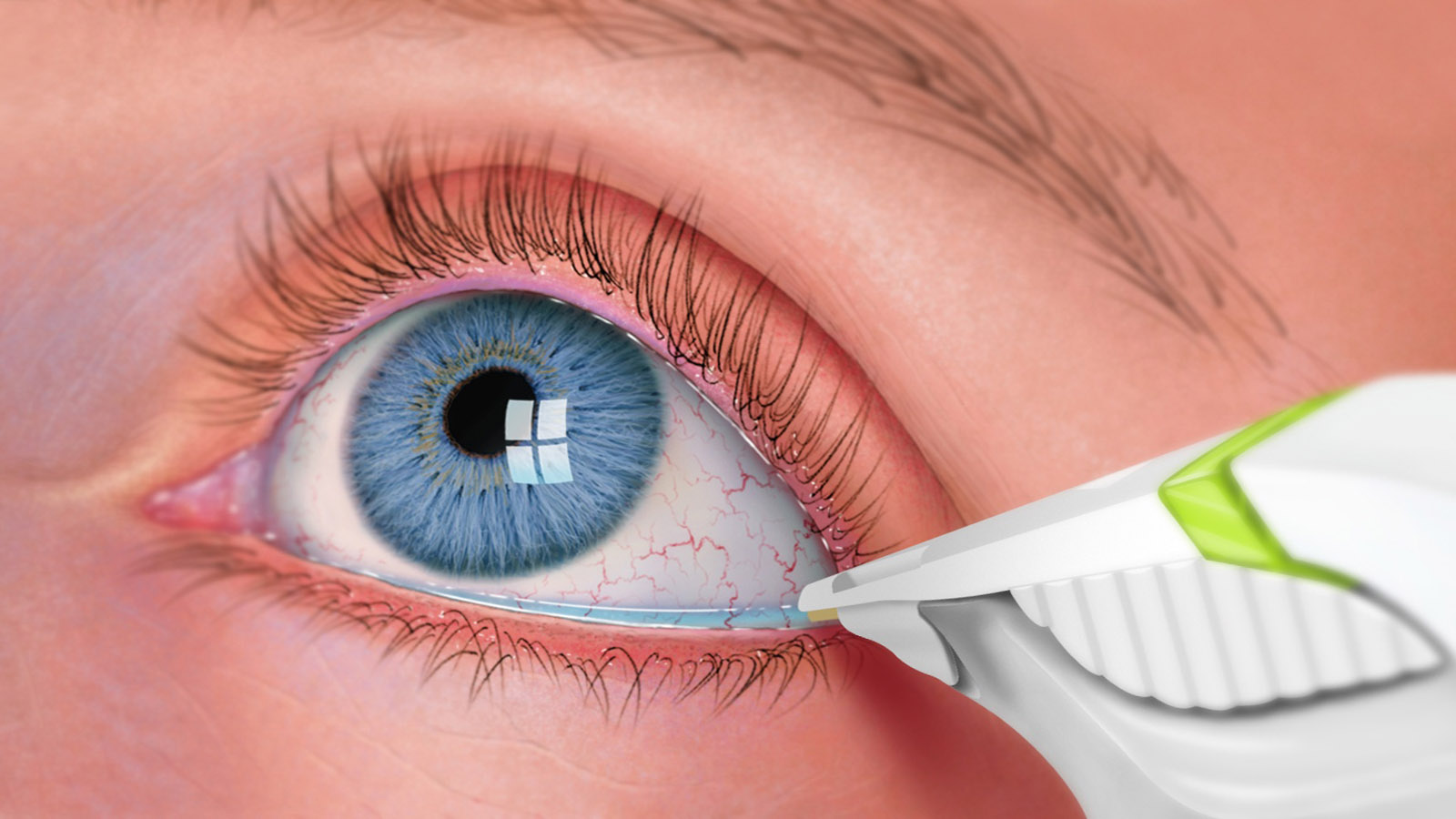Is Refractive Surgical Treatment Right for You? Variables to Consider for Better Eyecare
In the realm of eye care, the decision to undertake refractive surgery is a significant one that requires thoughtful factor to consider. As individuals look for clarity and flexibility from the restrictions of rehabilitative lenses, numerous elements come right into play when determining the viability of such a treatment. From the details of one's ocular health to the complexities of individual expectations and day-to-day behaviors, each aspect holds relevance in the wider landscape of refractive surgical procedure candidateship. By evaluating these key elements with care and accuracy, a more clear course in the direction of educated decision-making arises.
Eye Health And Wellness Examination
When taking into consideration refractive surgical procedure, a detailed eye health and wellness assessment is essential to assess the suitability of the procedure for each and every person. cardiologist andalusia. This analysis includes a series of assessments and tests performed by an eye care professional to establish the general health of the eyes, the presence of any hidden conditions, and the security of the refractive error
Throughout the assessment, numerous variables are taken right into account, such as the patient's case history, existing eye prescription, corneal thickness, student dimension, and tear film top quality. These assessments help to determine any contraindications to refractive surgery, such as corneal abnormalities, cataracts, or unattended eye infections. Additionally, the examination helps to handle patient assumptions concerning the possible outcomes of the surgical treatment based upon their distinct eye features.
Inevitably, the eye health assessment is necessary in making certain the safety and effectiveness of refractive surgical procedure, as it gives beneficial insights into the individual's eye health and wellness condition and aids determine the most suitable treatment options for achieving optimal visual results. (cardiologist andalusia)
Lifestyle Assessment
A comprehensive lifestyle assessment is integral in identifying the suitability of refractive surgical treatment for an individual's visual correction demands. Way of living variables such as line of work, hobbies, and day-to-day tasks play a vital function in the decision-making process regarding refractive surgical procedure. Individuals with occupations that involve a high level of physical activity or exposure to ecological aspects may have various aesthetic demands contrasted to those with inactive desk work. Comprehending just how an individual's way of life may affect their vision post-surgery is vital for managing assumptions and ensuring optimum results.
Moreover, way of living practices such as sports participation, outdoor tasks, or also skin care routines can influence the healing procedure and total success of refractive surgical procedure. By carrying out a detailed way of life assessment, eye treatment experts can tailor their recommendations and therapy plans to meet the unique demands of each person, inevitably leading to enhanced visual end results and contentment.
Assumption Alignment

Clients require to comprehend that while several individuals accomplish 20/20 vision or better complying with refractive surgery, some might still call for glasses for particular activities like reading or driving at evening. Managing these expectations aids avoid disappointment and discontentment post-surgery, leading to an extra positive general experience for the person.
Risk Analysis

Variables that may increase the threat of problems consist of age, certain clinical problems like autoimmune illness, unpredictable vision prescription, slim corneas, and unrealistic person assumptions. Additionally, choosing a skilled and competent doctor, following pre and post-operative care instructions faithfully, and divulging any appropriate clinical background can assist reduce risks.
To minimize the chance of difficulties, eye doctors perform complete pre-operative assessments to determine any kind of contraindications to surgical procedure. They also talk about the prospective dangers and advantages with individuals during the appointment process. By engaging in open interaction and shared decision-making, both the patient and the ophthalmologist can work together to figure out if refractive surgery is the best choice based on specific risk accounts and desired outcomes.
Assessment Relevance
Considering the essential function of notified decision-making in evaluating risks and potential complications in refractive surgical treatment, the appointment process holds considerable significance in guiding patients in the direction of optimum results. Throughout the consultation, the ophthalmologist evaluates the patient's eye health and wellness, refractive mistakes, and total viability for surgical procedure. This preliminary analysis is critical in figuring out one of the most ideal treatment for each individual, taking into account variables such as corneal thickness, student dimension, and existing eye problems.
Moreover, the assessment offers as an opportunity for clients to review their expectations, issues, and any concerns they may have concerning the surgery. Clear communication in between the surgeon and the person is important to ensure sensible assumptions and a detailed understanding of the potential risks and benefits entailed.
Furthermore, the assessment navigate here allows the doctor to discuss the different surgical options offered, their corresponding outcomes, and the post-operative treatment called for. This extensive conversation equips clients to make knowledgeable decisions about their eye care, bring about better contentment and outcomes post-surgery.
Final Thought
To conclude, individuals thinking about refractive surgical procedure should undergo a detailed eye wellness assessment, examine their way of living habits, align their expectations with prospective results, examine the connected threats, and focus on appointments with eye care professionals. These elements play a crucial role in identifying the suitability of refractive surgical procedure for each person, guaranteeing optimum end results and contentment with the treatment.
People taking into consideration refractive surgical procedure frequently have high assumptions relating to the results, expecting ideal vision without the requirement for glasses or get in touch with lenses. While refractive surgery can greatly improve vision and minimize reliance on visual help, it is critical for people to comprehend that results might differ based on private aspects such as the level of refractive mistake, corneal density, and general eye health.
By involving in open communication and shared decision-making, both the eye doctor and the client can work with each other to figure out if refractive surgery is the appropriate option based on individual threat profiles and desired end results.
Taking into consideration the vital role of educated decision-making in evaluating dangers and prospective problems in refractive surgical procedure, the consultation procedure holds significant relevance in directing people towards optimum results. Throughout the assessment, the ophthalmologist examines the patient's eye health and wellness, refractive reference errors, and general viability for surgery.